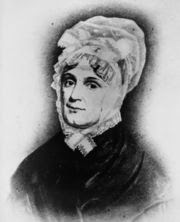At two points along the Potomac, the ship fired its mighty 12-inch “Peacemaker” gun, which could hurl a cannonball five miles. After lunch, while the president was still below deck, the gun was readied for another firing. “The president started up the ladder to observe the shot but paused to listen to his son-in-law, William Waller, sing a patriotic ditty about 1776,” wrote Ann Blackman in Navy History magazine (September 2005). “Just as the young man came to the word ‘Washington’ in the lyrics, the great gun exploded, hurling fiery iron in all directions.
“The ship trembled, and a dense cloud of white smoke smothered the deck, making it almost impossible to see or breathe. According to the editor of the Boston Times, an eyewitness, when the smoke cleared, dead bodies and detached arms and legs littered the deck. The blast had killed Secretary of State Upshur; Secretary of the Navy Gilmer; Virgil Maxcy, the American chargé d'affaires to Belgium; Julia Gardiner's father [she later married President Tyler, who was a widower]; Beverly Kennon, the Navy's chief of construction; and the president's personal valet, a slave named Armistead.” The entire article is here.
The vice president of the United States was nowhere near the site of the accident, because in fact there was no vice president at the time. Tyler had succeeded to the presidency after history’s briefest tenure as vice president, upon the death of William Henry Harrison in 1841. Had Tyler died aboard the Princeton, who would have become president (or possibly acting president)?
Willie Person Mangum of North Carolina, that’s who (pictured). He was president pro tem of the US Senate at the time, and under the succession law in force, next in line since there was no vice president. He’d served in the House and the Senate, was an ally of Henry Clay, and his politics had evolved from Jacksonian Democrat to anti-Jacksonian to Whig. His political career ended at about the same time as the dissolution of the Whig Party in the early 1850s, and he died in 1861 shortly after his only son was killed at the First Battle of Manassas.


























